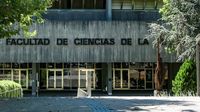In a dramatic turn of events, the Community of Madrid has announced the suspension of classes for Tuesday, April 29, 2025, due to a nationwide blackout that has left millions without power. However, in a bid to support families, all public and subsidized schools in the region will remain open to assist students who may need supervision during the day.
The decision to suspend classes was confirmed around 20:30 on Monday, April 28, 2025, as authorities grappled with the fallout from the blackout that began earlier that afternoon. Approximately 280,000 students in Madrid were set to take knowledge tests on Tuesday and Wednesday, but these have now been postponed indefinitely. The regional government communicated that "due to the electrical blackout suffered throughout Spain and the lack of knowledge about when power will be fully restored, there will be no educational activities," according to an official statement.
The crisis cabinet, which was established in response to the emergency, is located at the ASEM 112 security agency in Pozuelo de Alarcón, a facility that boasts energy autonomy for up to a week. This location has been pivotal in managing the crisis, as the 112 emergency switchboard reported handling over 3,000 cases between 12:30 and 20:30 on Monday. The fire department also responded to around 300 incidents, marking a historical record, although thankfully, none were classified as severe.
Madrid’s President, Isabel Díaz Ayuso, has been actively overseeing the crisis management efforts. During an interview with Telemadrid, she stated, "We are working like so many people in Madrid who are making a superhuman effort to restore normalcy." She emphasized the commitment to ensure that life continues as best as possible under the circumstances, saying, "We are going to give it our all." However, she refrained from guaranteeing that services would return to normal by Tuesday.
As the situation develops, many universities in Madrid are also facing uncertainty regarding their operations. The Universidad Complutense de Madrid (UCM) has announced the suspension of all non-essential activities until further notice, advising students to avoid unnecessary travel. Similarly, the Universidad Rey Juan Carlos (URJC) confirmed that classes would be canceled on Tuesday, while the Universidad Politécnica de Madrid (UPM) has halted all face-to-face academic activities, including classes and exams, although libraries will remain open.
The Universidad Carlos III de Madrid (UC3M) and the Universidad de Alcalá de Henares (UAH) have also suspended all academic and work activities for Tuesday. The UAH noted that the decision was made due to difficulties caused by the blackout, which impacted both mobility and the normal functioning of university services.
Across Spain, the blackout has had widespread repercussions, affecting not just Madrid but also regions such as Catalonia, Cantabria, and others. Prime Minister Pedro Sánchez addressed the nation regarding the incident, describing it as a "strong oscillation in technical terms of the European electrical system." He urged caution against speculation regarding the causes, emphasizing that all hypotheses remain open until further information is available.
The blackout has caused chaos in many cities, disrupting transportation, communications, and essential services. Many supermarkets have relied on generators to continue operating, while citizens are left uncertain about when normal services will resume.
In the wake of the blackout, several regions, including Madrid and Castilla-La Mancha, have confirmed that there will be no classes on Tuesday, but public institutions will remain operational. Meanwhile, Asturias has stated that classes will continue as scheduled, while regions like Comunidad Valenciana, Murcia, La Rioja, and Galicia have opted to suspend teaching activities.
As the recovery efforts continue, many are left wondering about the long-term implications of this blackout. With Prime Minister Sánchez indicating that the situation could be resolved by the end of the day, the focus now shifts to restoring power and ensuring the safety and well-being of citizens.
The impact of this blackout is likely to resonate beyond just the immediate disruption of services, raising questions about the resilience of Spain’s electrical infrastructure and the measures in place to prevent such occurrences in the future. As the crisis unfolds, the government’s response will be closely scrutinized by the public and experts alike.
In summary, the blackout has not only affected daily life in Madrid but has also sparked a broader conversation about energy reliability in Spain. With students and families navigating this challenging situation, the hope remains that services will return to normal soon, allowing life to pick up where it left off.




